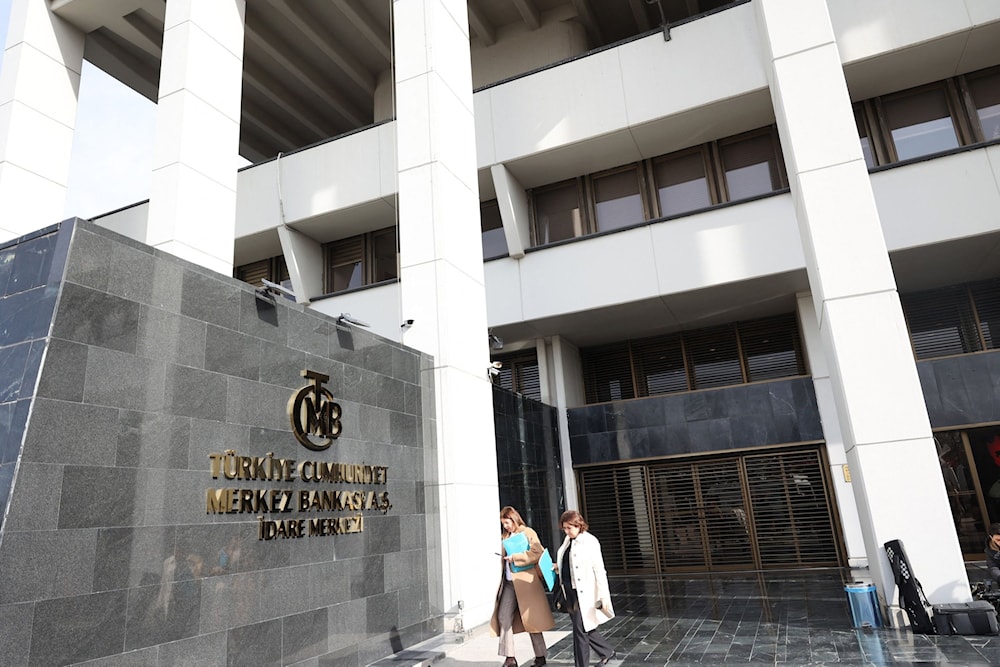Turkey records staggering $25.25 bln 2023 balance sheet losses
Reports say that the primary reason was attributed to substantial losses linked to the KKM foreign exchange-protected deposit scheme.
-

The entrance of the Central Bank of the Republic of Türkiye (CBRT) in Ankara, Turkey, February 8, 2024. (AFP)
Turkey's central bank reported a substantial loss of 818.2 billion lira ($25.25 billion) for the year 2023, Reuters reported on Monday.
This loss was disclosed in the bank's balance sheet, which was published in the Official Gazette on Sunday. The primary reason was attributed to substantial losses linked to the KKM foreign exchange-protected deposit scheme.
The government has been engaged in efforts for several months to discontinue the KKM program, which was introduced in 2021 to mitigate a severe currency crisis. The losses incurred from the KKM program led the central bank to decide not to distribute profits to the Treasury in 2023.
Read more: Turkey achieves 10-year low unemployment rate in 2023
The program played a role in reversing a trend where Turkish citizens were increasingly turning to hard currency and gold as a means to protect their savings, which had been a response to years of depreciation of the Turkish lira.
The central bank is currently aiming to increase the proportion of lira deposits within the banking system. This move began in August, when it started encouraging the conversion of KKM accounts into regular lira accounts.
An independent audit report published last year showed the central bank posted a profit of 72 billion lira in 2022 and 57.5 billion lira in 2021.
The central bank will convene its general assembly on April 30 in Ankara to discuss the 2023 results.
Lira's ups and downs
Since the start of 2023, the Turkish lira experienced monthly depreciation, except for a respite in August. June 2023 also witnessed a substantial decline of nearly 25%, as the lira fell from 20.8 liras to 26 liras per dollar. The following month saw the exchange rate surpassing 27 liras.
In December 2023, Turkey faced a considerable inflationary surge as it reached approximately 65%, causing concerns about economic stability. Meanwhile, the inflation research group ENAG suggested a figure exceeding 127%.
The newly appointed head of the Turkish Central Bank (CBRT) Fatih Karahan declared last February that his primary goal is to ensure the effective control of inflation.
He also pledged to keep borrowing costs elevated until inflation reaches levels aligned with the bank's specified target.
Finance Minister Mehmet Simsek projected a decline in consumer price growth to 34% by the end of the current year.

 3 Min Read
3 Min Read








